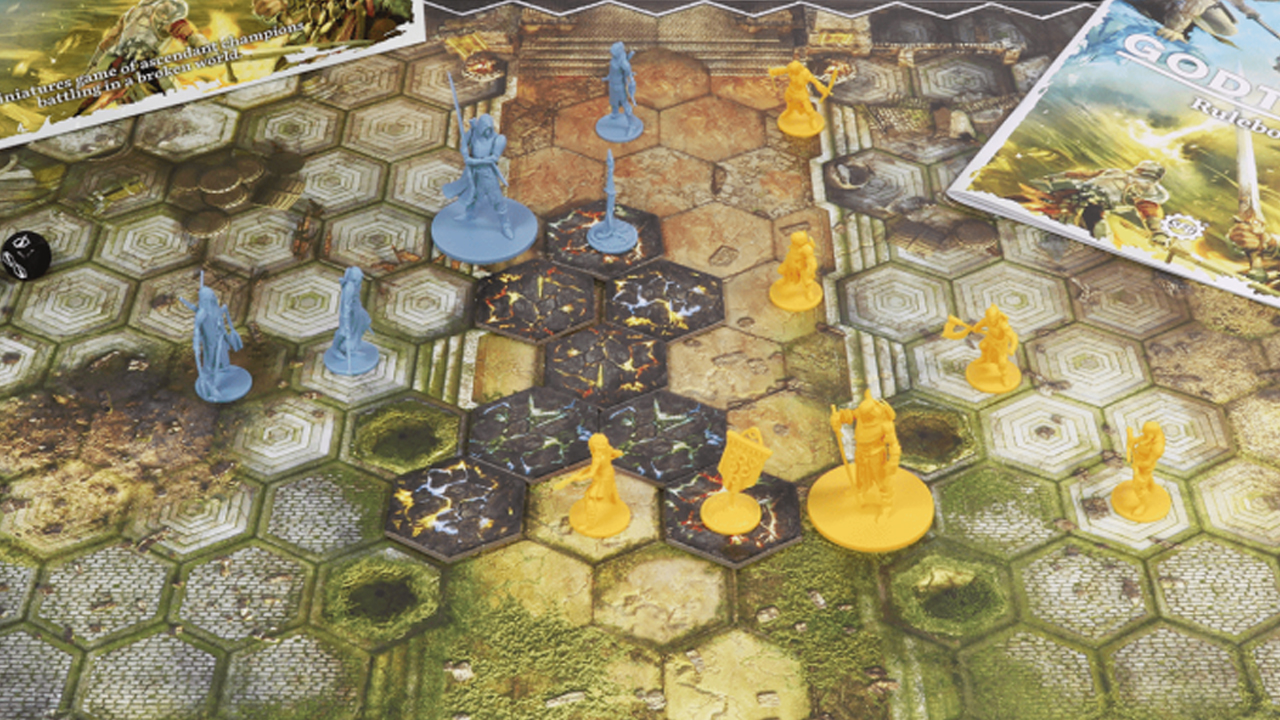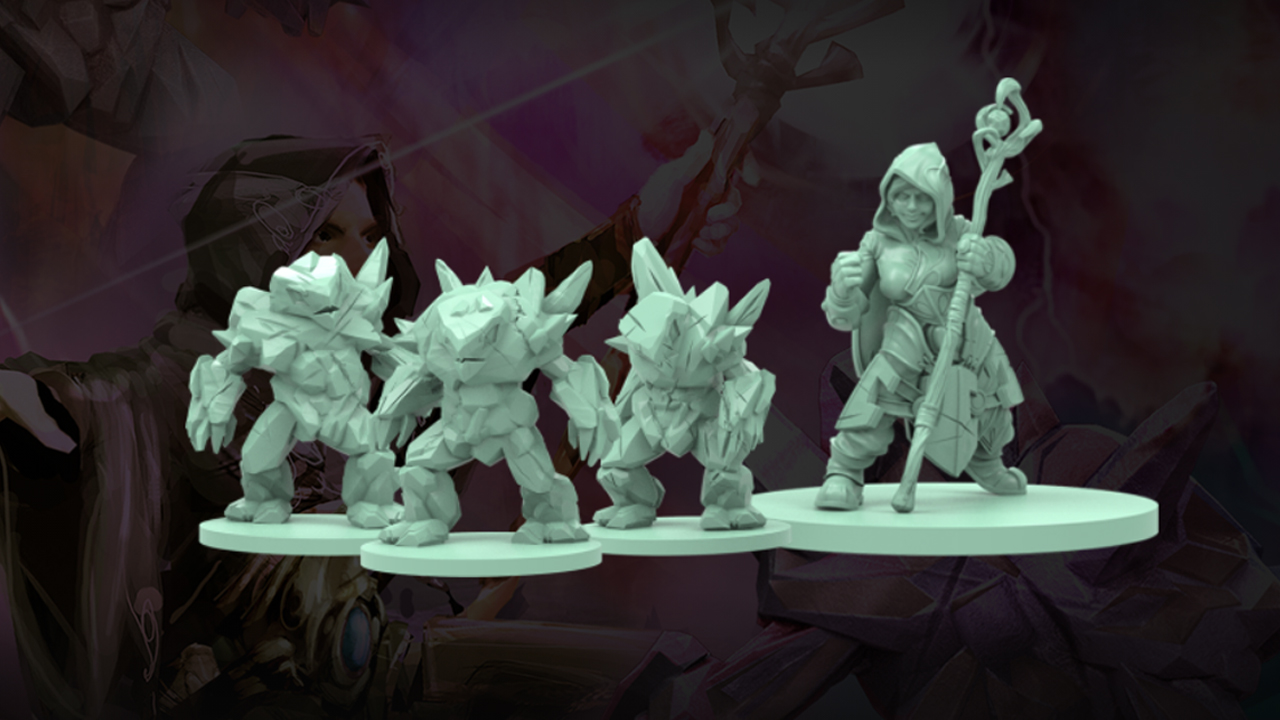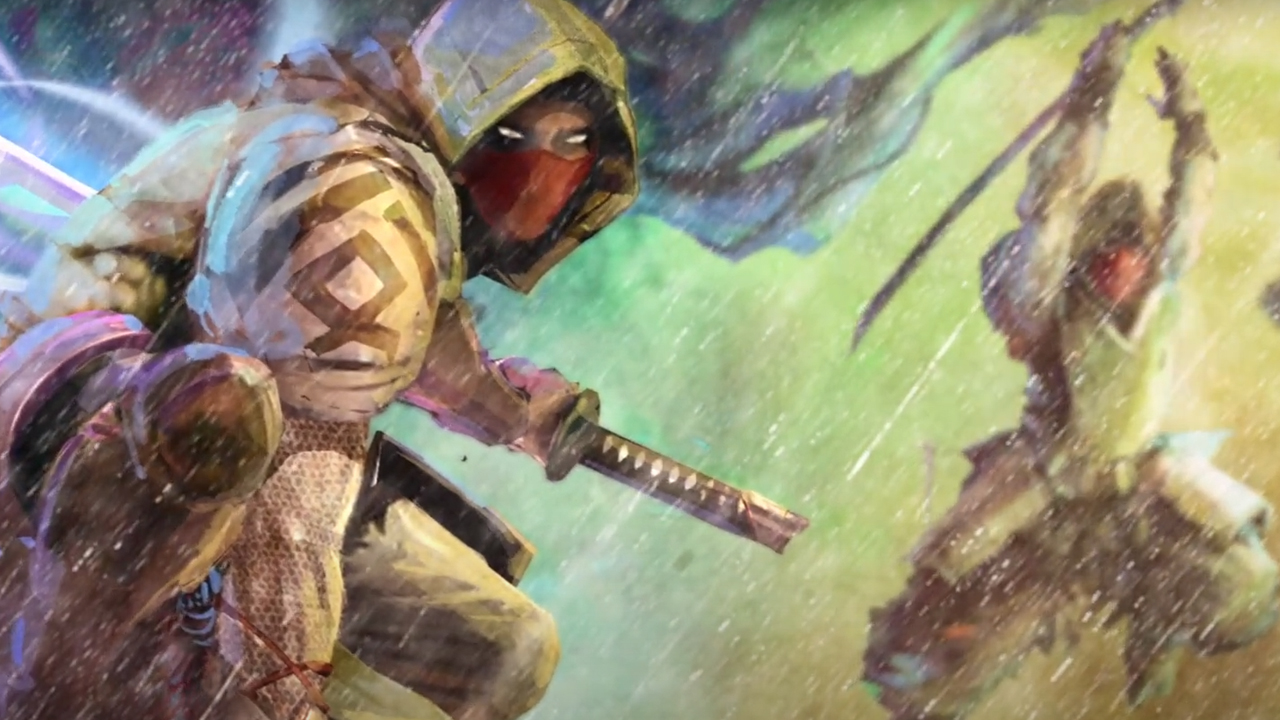GamesRadar+ Verdict
Godtear offers accessible and pleasingly robust strategy play, making it ideal for newcomers or competitive action.
Pros
- +
Accessible
- +
Cleverly blends mechanics and lore
- +
Characterful miniatures
- +
Interesting classes and abilities
Cons
- -
Not as deep as other wargames
Why you can trust GamesRadar+
It's tricky to make a name for yourself in the wargaming sphere, but Godtear has a chance of blowing the doors open. It fills a niche that few others do; besides focusing on a smaller cast of memorable characters, it takes the genre and wraps a more traditional board game around it. This gives Godtear a sense of accessibility many alternatives lack. It's much more approachable as a result. In fact, it strikes me as a tabletop equivalent of games like Overwatch.
That's definitely in its favor. If you don't have time for wargames with a thick rulebook and countless labor-intensive miniatures on either side (believe me, I know the feeling), Godtear is one of the best board games there is.
New gods
When it comes to tabletop wargaming, a certain brand casts such a large shadow that it dominates the conversation. That makes it difficult to carve out a niche. However, and much like Elder Scrolls: Call to Arms, Godtear offers a legitimately unique selling point. Namely, you don't need to worry about complex stats or fussing over points values. Everything you need to know is limited to a very scannable reference card, and the action takes place via a hex-based board rather than a table festooned with miniature terrain. It's easy to learn, quick, and accommodating regardless of your skill level.
Godtear's premise is similarly straightforward. The deities of this universe are dead, and their cosmic energies are falling to the ground in crystal shards that infect the earth below. Mortal champions are now moving to claim that power for themselves, and cults have sprung up around these 'new' gods. It's a good elevator pitch.
It justifies more than a few in-game mechanics, too. Namely, all scenarios task you with claiming these crystal 'godtears'; they offer you points that are crucial for victory. In addition, they provide an easy, in-universe explanation for weird objectives. Some have the godtears spreading across the map, making them much harder to police. Others take away godtear tokens at the end of each turn or move them across the board entirely.

The godtears also give your champions a larger stature (literally: their models loom over the battlefield) and more interesting abilities. This allows the development team a chance to go wild when differentiating each hero. As per the Funkoverse Strategy Game, part of the fun is mixing and matching the game's wide range of champions. This allows for a much cheaper hobby, too. Rather than limiting your force to a predefined army list, your champions can team up with any others (the idea is that everyone will put aside their differences to snag the power of a godtear).
Suffice to say, it's a deep well to draw from.
Godtear's user-friendliness extends to its gameplay as well. Because battles occur on a reversible board with hexes that are used for movement and range, it's dead easy to determine both. Equally, the character cards you'll always have in front of you list exactly what your warband can do in clear terms (once you've learned each symbol's meaning, anyway). No pre-game swotting or learning of codexes is required.
Speed meets style
The downside of this is a lack of complexity that Warhammer fans may miss. There aren't any rules to determine difficult terrain or cover, for example. However, the benefits of speed and accessibility swing the pendulum back in Godtear's favor.
Speaking of a pendulum, that's a good way of describing Godtear gameplay. You need five victory points to win, and you earn these by moving a token up or down the ladder through simple actions - knocking out foes, claiming objective hexes, or having a token on a godtear at the end of a round. If the token ends up on your side of the ladder when the turn is over, you earn the victory point printed underneath. Because these increase and decrease during the course of a match (one victory point is up for grabs during the first round, two for the second, three for the third, two for the fourth, and one for the fifth), there's usually a chance of clawing back a win from the brink of defeat. That makes it feel nicely balanced.

The same is true of your warband. Even if models are knocked out, they can come back in your next round. This helps Godtear seem like a fair fight throughout, and you don't need to throw in the towel if you have a bad turn.
That doesn't mean there isn't skill involved, though; each unit offers different buffs, abilities, and play styles that'll take time to learn. On much the same note, champions fit into different classes that alter how they're used. Slayers are built to take on champions, Shapers can manipulate objective hexes, Maelstroms excel at wiping out minions, and Guardians… well, they're self-explanatory. It's absolutely the sort of game I can see being played competitively at tournaments as a result.
The miniatures attached to these rules are equally imaginative. Although they're not necessarily as detailed as other wargames due to the fact that they come out of the box ready to go, they're still fantastic to look at or paint. No matter whether you're using rock minions, ninja elves, or something else entirely, the poses ooze character. To be honest, I've already earmarked a few for use in my sessions playing some of the best tabletop RPGs.
With that in mind, Godtear comes highly recommended. Yes, it's ideal for players wanting a quick competitive experience. But it's also the perfect gateway for anyone hoping to dip a toe into the world of miniature wargaming without the time demands or crippling prices.

I've been writing about games in one form or another since 2012, and now manage GamesRadar+'s tabletop gaming and toy coverage. You'll find my grubby paws on everything from board game reviews to the latest Lego news.



